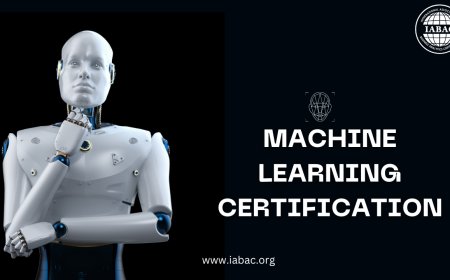Career Opportunities Does the HR Analytics Course Offer
Discover the diverse career opportunities an HR Analytics Course offers. Gain insights into roles in data analysis, talent management, and strategic HR with specialized analytics skills.

An HR analytics course is a great way to learn all about analyzing human resources data. These courses teach you how to collect, understand, and use data to help companies make better decisions about their employees. You'll learn about things like graphs and charts, figuring out trends, making predictions, and using fancy computer programs to help with everything. Plus, everything you learn is focused on how it relates to HR. One cool thing about finishing an HR analytics course is all the jobs you can go for afterward. You could become an HR data analyst, a person who helps HR teams understand data better. Or maybe you'll be a metrics and reporting specialist, someone who's good at explaining data to others. There's also the option to be an HR business partner, working closely with HR teams to make sure they're using data in the best way possible.
Getting a certification in HR analytics can make you even more attractive to employers. It shows them that you know your stuff and that you're serious about helping their company succeed. And if you're keen, you can also look into certifications in other similar areas, like Data Science or business analytics, to open up even more job opportunities. With more and more companies realizing how important it is to use data in HR, there's a growing need for people who know all about HR analytics. Whether you're starting in your career or looking to add some new skills, taking an HR analytics course could be a great move for your future job prospects.
Exploring HR Analytics Careers: Opportunities in the Growing Field
In recent times, there's been a big demand for people who can understand HR data, which means information about employees at a company. Businesses are using this data to make smart choices about things like hiring new people, keeping current employees happy, and figuring out how well everyone is doing their job. This need for HR analytics experts has opened up lots of job options for those who know how to do this kind of work. All kinds of companies, from tech to healthcare to retail, are looking for folks who are good at looking at HR data and using it to make important decisions. If you're thinking about getting into this field, there are some things you can do to prepare yourself. Taking classes or getting certifications in HR analytics, data science, or business analytics can make you attractive to employers.
The rise of HR analytics isn't just changing how HR works—it's also making room for new and creative ways to manage talent, which means the people who know how to work with HR data are in a great position to build successful careers. And it doesn't look like the demand for HR analytics experts will slow down anytime soon. As more businesses realize how useful it is to use data to make HR decisions, they'll be looking for even more people who know how to do this kind of work. So, if you're interested in a career in HR analytics, getting the right education and certifications can help you stand out in this exciting and fast-growing field.
Challenges in Choosing the Right Career Path in HR Analytics
Starting a career in HR analytics is like navigating a tricky maze. While it offers lots of opportunities, there are hurdles to overcome. Here are some common challenges people face when choosing the right path in HR analytics:
1. Variety of Skills Needed: HR analytics involves many skills like data analysis, statistics, HR management, and using technology.
2. Keeping Up with Technology Changes: It's important to stay updated with new technology. What's useful now might not be later.
3. Choosing the Right HR Analytics Course: With so many options, picking the best course can be tough. You need to think about things like what's taught, if it's accredited, and if it's useful in the real world.
4. Uncertainty in Career Paths: Careers in HR analytics aren't always straightforward. You might not know exactly what roles are available or how to move up.
To tackle these challenges, you need to be hardworking, adaptable and plan carefully. Understanding these obstacles can help you make smart choices for a successful career in HR analytics.
How can I find the perfect job in HR Analytics?
1. Check What Companies Want: Start by looking into which industries are really into HR Analytics jobs. Think about places like tech, finance, healthcare, and stores. You can use sites like LinkedIn or Glassdoor to see what jobs are out there and what's popular.
2. See If You Fit: Think about what you're good at and what you like doing. Do you enjoy playing around with data and numbers? Are you okay with using tools like R or Python? If that sounds like you, HR Analytics might be your thing.
3. Take an HR Analytics Course: You could sign up for an HR Analytics course. These classes teach you all about data, how to predict stuff, and how to plan for the workforce. Doing a course shows you're serious about this career path.
4. Talk to People Already Doing It: Reach out to folks who are already working in HR Analytics. You can meet them at events or online. Hearing about their experiences can give you some great tips and maybe even lead you to a job.
5. Start Small: If you're just starting out, try to find internships or entry-level jobs. These can help you learn the ropes and get better at HR Analytics. Look for gigs where you can work with HR teams or data teams in companies.
6. Keep Learning: HR Analytics is always changing, so it's important to keep up. Read up on what's new, go to events, and follow experts on social media. Learning new things will keep you sharp in the job market.
By doing these things, you can find the perfect HR Analytics job and start working towards your career goals.
Exploring Jobs in HR Analytics with an HR Analytics Course
In today's world, bBHR departments are starting to use analytics, which means looking at data to learn things. This makes jobs in HR analytics important. Let's see what kinds of jobs you can get and how taking a course in HR analytics can help you.
1. Data Analyst: In HR analytics, data analysts study lots of information about employees. They find trends and patterns in the data to help HR make better choices. To do this job, you need to be good at math and know how to use tools that help you see data.
2. HR Manager: HR managers with HR analytics skills can use data to make HR better. They look at what the data says to make decisions about things like hiring and making employees happy.
3. Talent Acquisition Specialist: These specialists use data to find the best people to hire. They look at information about candidates to see who would be good for the job.
4. Compensation and Benefits Analyst: These analysts use data to figure out how much employees should get paid and what kind of benefits they should have.
5. Workforce Planner: Workforce planners use data to guess what HR needs will be in the future. They look at things like how many people might leave their jobs or what skills the company will need.
Taking a course in HR analytics can teach you all the skills you need for these jobs. Platforms like IABAC offer classes where you can learn about data analysis and HR. Remember to keep learning and working with others to do well in this field.
working in HR analytics means using data to help HR do its job better. With the right training, you can have a great career in this field.
HR analytics offers lots of job opportunities where HR and data science meet. As companies use more data to make their HR strategies better, they need people who are good at HR analytics. There are different jobs in this field, like HR analysts and data scientists who focus on human resources. Getting into this field gives you chances to work in jobs that help companies work better, keep their employees happy, and be successful.










































